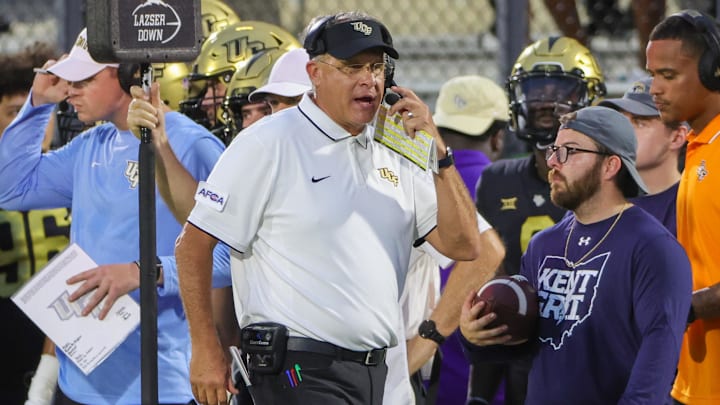UCF may not seem like a small school based on its current enrollment alone. The university has the largest enrollment in Florida and is one of the top schools when it comes to enrollment with over 69,000 students.
However, the athletic department is still growing and could still be considered smaller. Yes, UCF is a part of the Big 12 now, but compared to other schools in the conference, UCF's athletic program is small.
UCF is definitely benefitting from being in the Big 12 and they are probably thanking their lucky stars they are in a Power conference now with the House vs. NCAA settlement.
The House vs. NCAA settlement is a case that will now have universities paying their athletes and even back-paying former athletes dating back to 2016. The payment of athletes will now be possible thanks to a revenue-sharing program implemented by the NCAA.
Basically, universities will now be directly paying their athletes, however, the money they will be given with the revenue-sharing program may not go to every athlete on campus. Universities will decide who they pay the money to, they could pay football and men's basketball athletes all the money, or they may distribute it evenly to all college athletes.
The settlement consists of the payment of athletes, a revenue-sharing model, and a $2.75 billion back-pay in damages that the NCAA owes to former athletes. Now this settlement still needs to be approved by a federal judge and it very well could not be, but for the purposes of this article, we will talk about what happens if it does get approved.
This settlement is complicated and messy and raises more questions than answers. A lot of the answers are given to more Power 5 conferences and schools, but Group of Five schools are left with their heads spinning.
Again, UCF is probably thanking their lucky stars they made the move to the Big 12 when they did because they will be able to benefit from being in a Power conference versus a Group of Five conference.
UCF may still struggle in certain areas until they get a better footing in the Big 12, but they shouldn't have to wonder where the money will come from if they will have to cut certain sports, or if they will have to drop down a division.
The biggest problem UCF will have to deal with is how this settlement will affect their smaller sports like women's basketball, softball, baseball, men's and women's soccer, volleyball, track and field, cross country, and rowing.
The distribution of the money that UCF will get to give to athletes will be a big decision for the athletic program to make. The other issue is that with universities paying athletes, walk-ons may be a thing of the past and for smaller sports, they thrive on being able to have walk-ons.
There are still a lot of questions that come with this settlement and more will be learned when and if it gets approved by a federal judge.
